
The Timeless Charm of the Forum of Pompeii
The Forum of Pompeii, nestled in the heart of the ancient city of Pompeii, offers a remarkable glimpse into Roman life frozen in time. This central square served as the bustling hub of political, commercial, and social activities. Surrounded by significant landmarks, including temples, markets, and administrative buildings, the Forum was the epicenter of daily life in Pompeii. Walking through the Forum, you can almost hear the echoes of ancient traders, politicians, and citizens going about their day. The grand columns and well-preserved ruins transport you back to a time when Pompeii was a thriving city before it was famously buried under volcanic ash in 79 A.D. The Temple of Jupiter, the Basilica, and the Macellum are just a few of the impressive structures that dot this historical landscape. Visitors can explore the intricate details of Roman architecture and urban planning while imagining the Forum as it once was. The site offers a unique educational experience, shedding light on the sophisticated society that once inhabited this area. The blend of history, culture, and the poignant reminder of the city's tragic end make the Forum of Pompeii a must-visit destination for history enthusiasts and casual tourists alike.
Local tips in Forum of Pompeii
- Visit early in the morning to avoid crowds and the midday heat.
- Wear comfortable shoes, as the ancient pavements can be uneven.
- Bring water and sun protection, especially during the summer months.
- Consider hiring a local guide to enrich your understanding of the site's history.
- Allocate at least a couple of hours to fully explore the Forum and its surrounding structures.
The Timeless Charm of the Forum of Pompeii
The Forum of Pompeii, nestled in the heart of the ancient city of Pompeii, offers a remarkable glimpse into Roman life frozen in time. This central square served as the bustling hub of political, commercial, and social activities. Surrounded by significant landmarks, including temples, markets, and administrative buildings, the Forum was the epicenter of daily life in Pompeii. Walking through the Forum, you can almost hear the echoes of ancient traders, politicians, and citizens going about their day. The grand columns and well-preserved ruins transport you back to a time when Pompeii was a thriving city before it was famously buried under volcanic ash in 79 A.D. The Temple of Jupiter, the Basilica, and the Macellum are just a few of the impressive structures that dot this historical landscape. Visitors can explore the intricate details of Roman architecture and urban planning while imagining the Forum as it once was. The site offers a unique educational experience, shedding light on the sophisticated society that once inhabited this area. The blend of history, culture, and the poignant reminder of the city's tragic end make the Forum of Pompeii a must-visit destination for history enthusiasts and casual tourists alike.
Iconic landmarks you can’t miss
Pompeii Archaeological Park
Explore the ancient ruins of Pompeii Archaeological Park, a UNESCO site revealing the daily life of Romans frozen in time by volcanic ash.
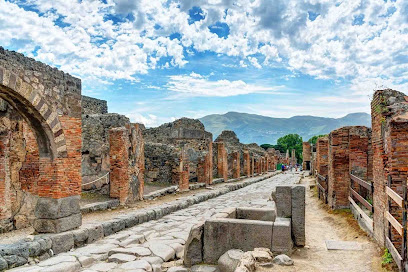
Scavi di Pompei
Explore the ancient wonders of the Scavi di Pompei, where history comes alive amidst the ruins of a civilization lost to time.
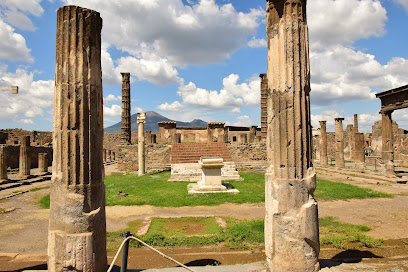
Foro di Pompei
Explore the archaeological wonders of Foro di Pompei, an iconic historical landmark that reveals the life and culture of ancient Rome.
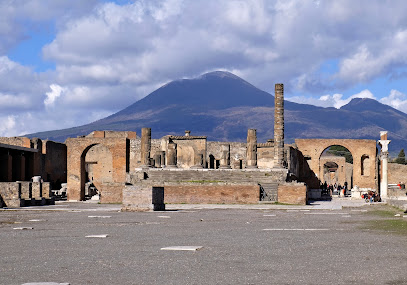
Pompeii (UNESCO)
Explore the ancient ruins of Pompeii, a UNESCO World Heritage Site, where history and culture blend seamlessly for an unforgettable experience.
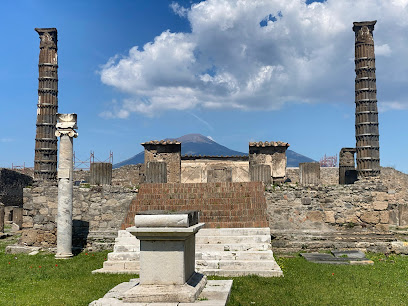
Antiquarium di Pompei
Explore the Antiquarium di Pompei: Uncover the rich archaeological heritage of Pompeii through fascinating exhibits and historical artifacts.
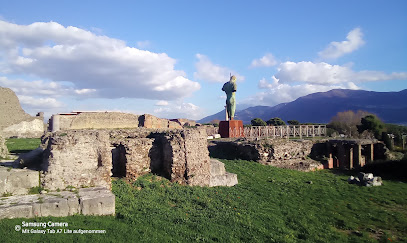
Temple of Venus
Explore the Temple of Venus in Pompeii, a stunning monument showcasing the grandeur of Roman architecture and the cultural significance of ancient worship.
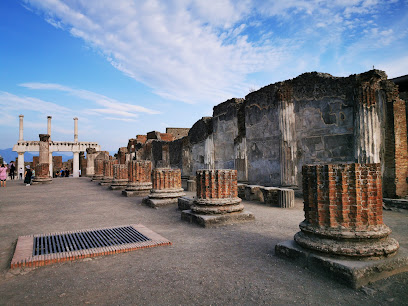
Forum Baths
Explore the Forum Baths of Pompeii, a remarkable historical landmark showcasing the grandeur of ancient Roman bathing culture amidst well-preserved ruins.
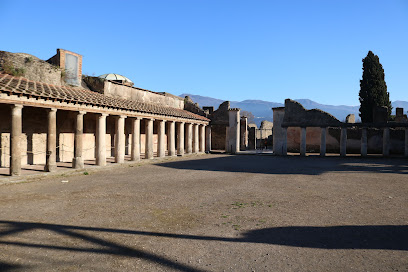
Granaries of the Forum
Explore the Granaries of the Forum, an essential historical monument in Pompeii, rich with ancient Roman heritage and architectural splendor.
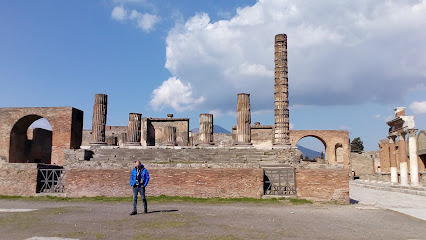
Casa della Fontana Grande
Explore the rich history and stunning architecture of Casa della Fontana Grande, an archaeological treasure in Pompeii, Italy.
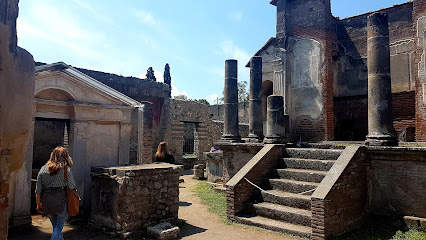
Triangular Forum
Explore the Triangular Forum in Pompeii, a stunning monument that reveals the rich history and culture of ancient Roman civilization amidst breathtaking scenery.
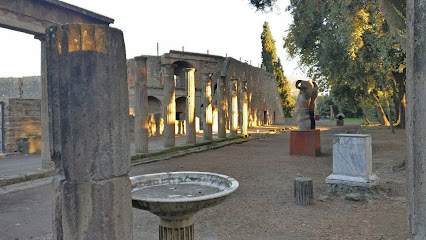
Unmissable attractions to see
Basilica
Explore the grandeur of the Basilica in Pompeii, an ancient monument that showcases the architectural brilliance of Roman civilization amidst the ruins.
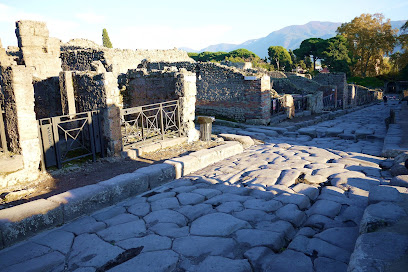
Pompei è Magica
Explore the timeless wonder of Pompei è Magica, where ancient history comes alive amid the ruins of a city lost to time.
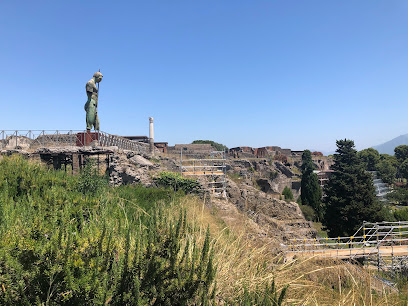
Pompei: cardi e decumani
Uncover the mysteries of ancient Roman life at Pompeii, a UNESCO World Heritage site, where history comes alive through remarkably preserved ruins.

Essential places to dine
La Bettola Del Gusto
Discover exquisite seafood and steak dishes at La Bettola Del Gusto, Pompeii's top culinary destination offering fresh flavors in an inviting atmosphere.
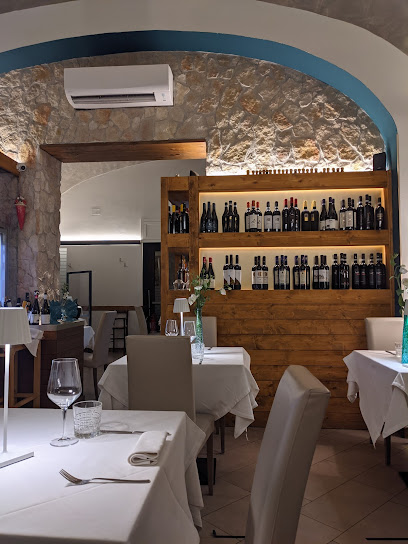
Caupona Pompeii
Experience authentic ancient Roman cuisine at Caupona Pompeii - where history meets flavor in every dish.
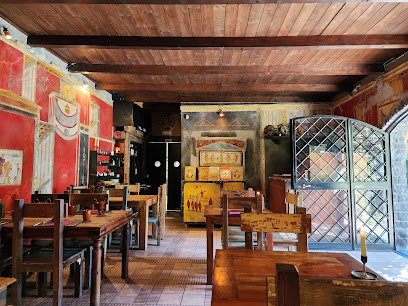
Mercato Pompeiano Restaurant
Experience authentic Italian cuisine at Mercato Pompeiano in Pompei, where tradition meets modern culinary artistry.
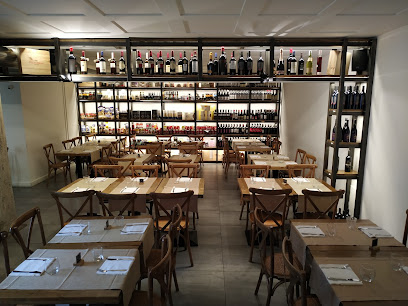
Vesuvio
Experience authentic Italian cuisine at Ristorante Il Vesuvio in Pompei - a must-visit for pizza lovers and culinary enthusiasts alike.
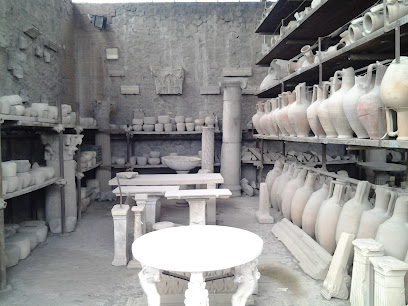
Ristorante Tiberius Pompei
Experience authentic Italian cuisine at Ristorante Tiberius in Pompeii - where history meets exceptional dining.
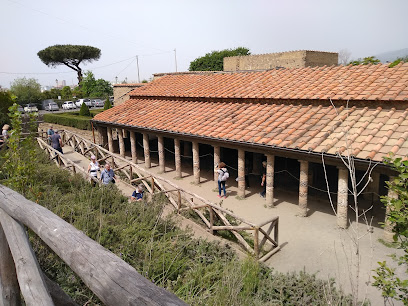
Hortus Pompei, Restaurant & Garden Bar
Experience authentic Italian flavors at Hortus Pompei - a charming restaurant & garden bar near the historic ruins of Pompei.
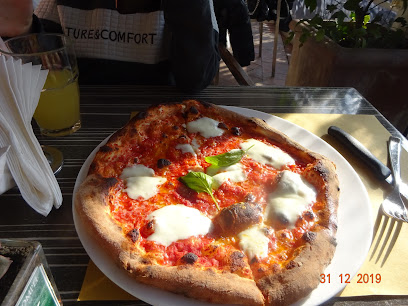
Ristorante pizzeria Turistico
Experience authentic Italian flavors at Ristorante Pizzeria Turistico near Pompeii's ancient ruins.
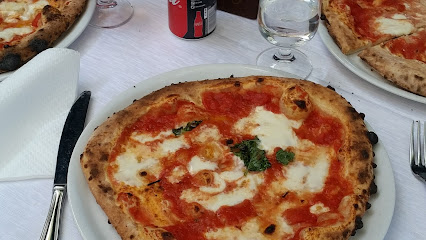
Ristorante Suisse
Experience authentic Italian cuisine at Ristorante Suisse in Pompei - where every meal is a celebration of flavor.
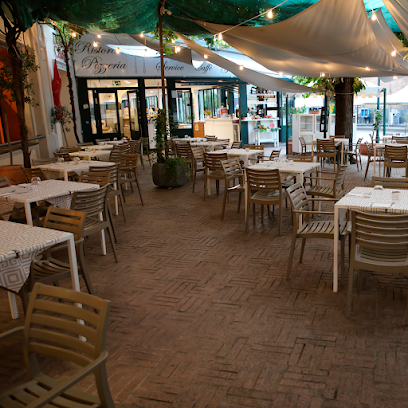
Il Posticino
Experience authentic Italian flavors at Il Posticino in Pompei – where fresh seafood meets rich culinary traditions.
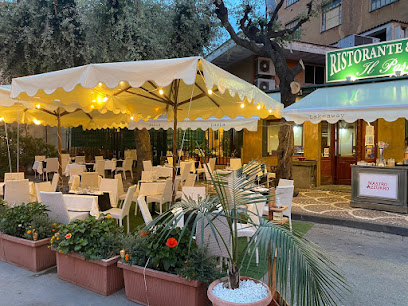
Ristorante Anfiteatro
Experience authentic Italian flavors at Ristorante Anfiteatro in Pompei, featuring delicious pizzas and family-friendly dining.
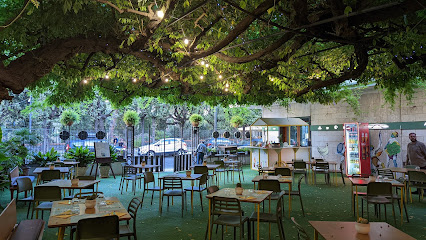
Markets, malls and hidden boutiques
Pipol
Discover unique fashion treasures at Pipol, a boutique in Pompei offering a blend of local craftsmanship and contemporary style.
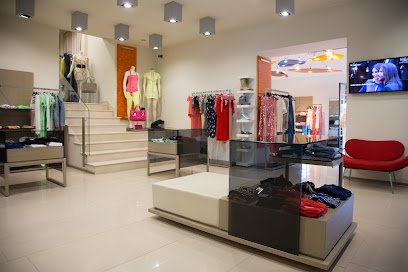
Tufano Moda - Pompei
Explore Tufano Moda in Pompei for the latest in men's and women's fashion, from chic clothing to stylish accessories.
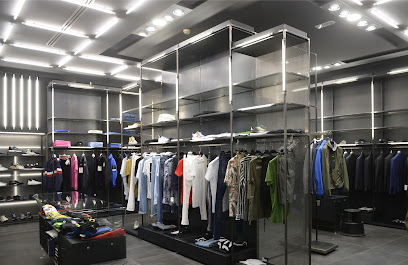
GIORDANO BOUTIQUE
Explore stylish fashion at Giordano Boutique in Pompei – an unmissable stop for tourists seeking authentic Italian clothing.
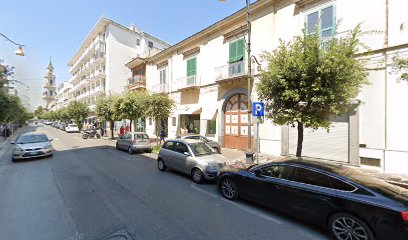
Boutique Rosalba Abbigliamento - Lacoste, Wrangler, Levi's
Explore Boutique Rosalba in Pompei for a stylish selection of Lacoste, Wrangler, and Levi's clothing for both men and women.
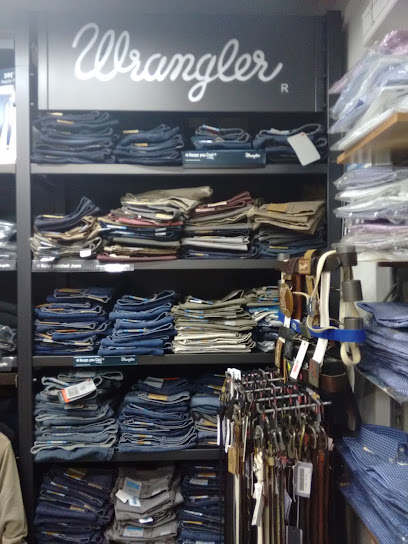
Boutique Demil Di Emilia Di Paolo
Discover unique Italian fashion at Boutique Demil Di Emilia Di Paolo in Pompei, where style meets tradition in a charming atmosphere.
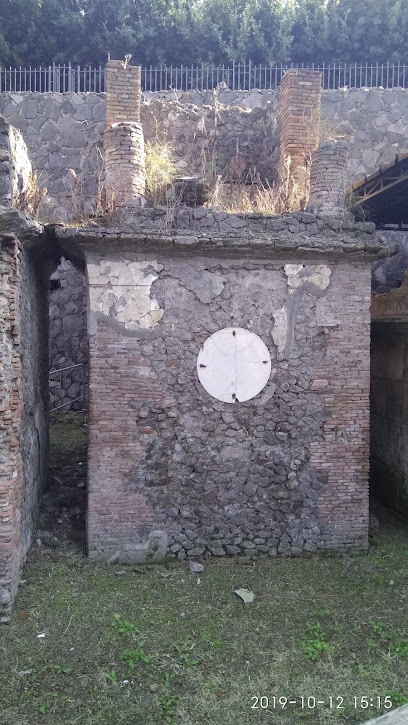
Cellini Gallery Cameos & Corals
Experience the exquisite artistry of cameos and corals at Cellini Gallery in the heart of Pompei, where timeless craftsmanship meets modern elegance.
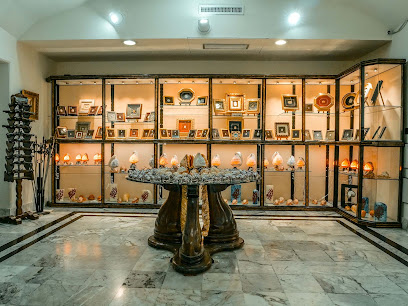
Ginseria
Explore the charm of vintage fashion at Ginseria in the heart of Pompei, where timeless style meets unique finds.
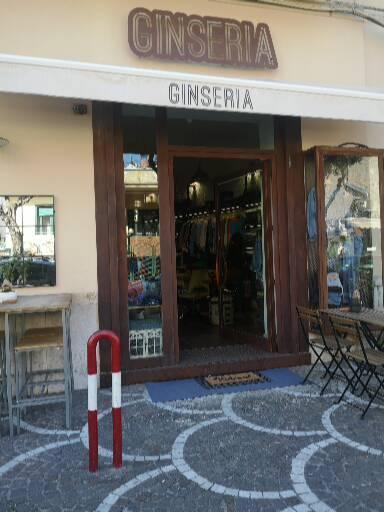
See Pompeii
Explore the Pompeii Souvenir Store for unique memorabilia and handcrafted treasures that celebrate the ancient city's rich cultural heritage.
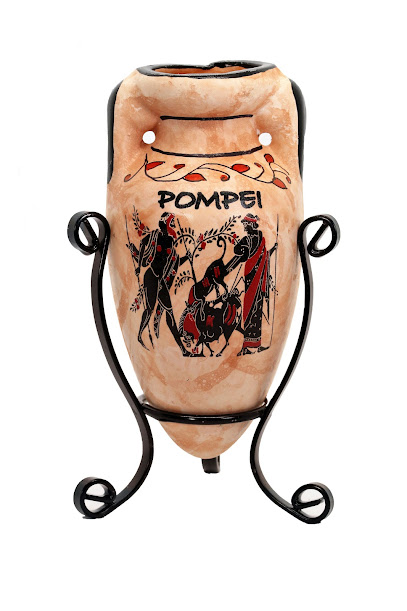
Aurum S.n.c.
Explore unique handicrafts and fashion accessories at Aurum S.n.c. in Pompei, where Italian artistry comes to life.
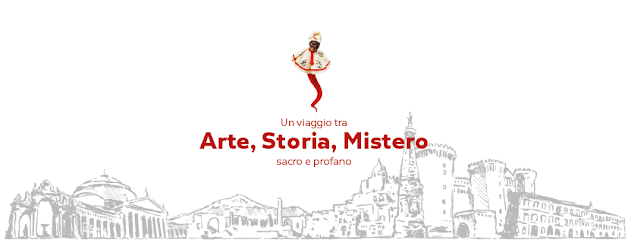
roberta falco shop
Explore Roberta Falco Shop in Pompei for a unique blend of contemporary fashion and timeless elegance, where every piece tells a story.
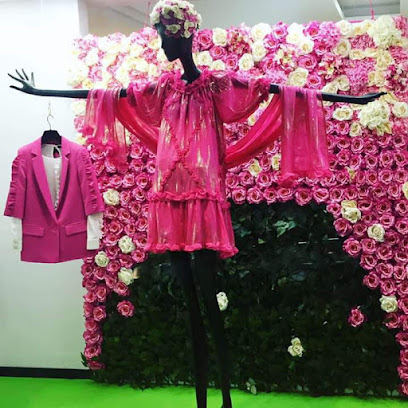
Essential bars & hidden hideouts
Wolf Irish Pub
Discover the charm of Wolf Irish Pub in Pompei, where Irish hospitality meets Italian warmth in a delightful dining experience.
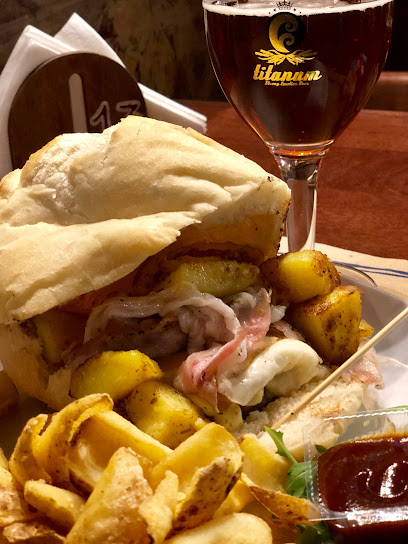
Open Bar Pompei
Experience the vibrant atmosphere of Open Bar Pompei, where Italian flavors meet local culture in a delightful setting.
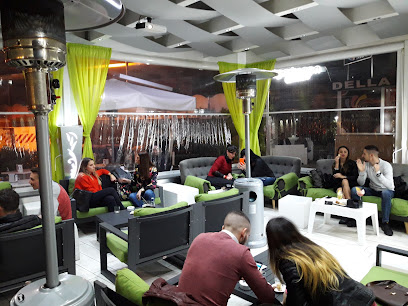
'Mericano (Pub - Steak House - Birreria) Pompei
Savor delicious steaks and craft beers at Mericano, the ultimate pub experience in Pompei, Italy.
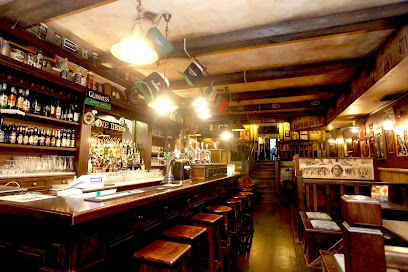
Pub27
Discover the lively atmosphere and local flavors at Pub27 in Pompei, a must-visit pub perfect for unwinding after exploring the ancient ruins.
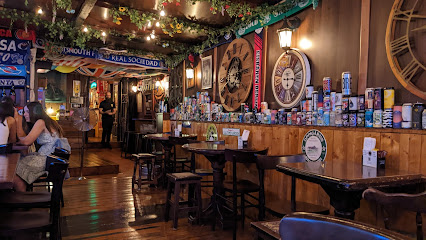
So Zen Mediterranean Restaurant & Arabian Lounge Bar
Experience the rich flavors of Mediterranean and Arabian cuisine at So Zen Mediterranean Restaurant & Arabian Lounge Bar in Pompei.
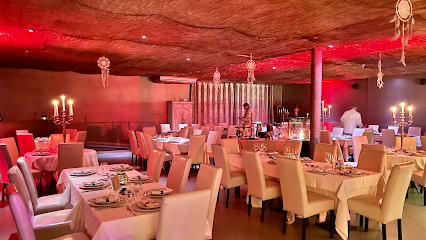
Delirum
Discover Delirum, Pompei's vibrant cocktail bar serving innovative drinks in a lively atmosphere perfect for tourists and locals alike.
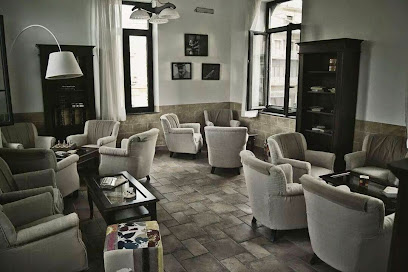
The Dream 64
Experience the vibrant flavors at The Dream 64, a premier gastropub in Pompei known for its delicious hamburgers and inviting atmosphere.
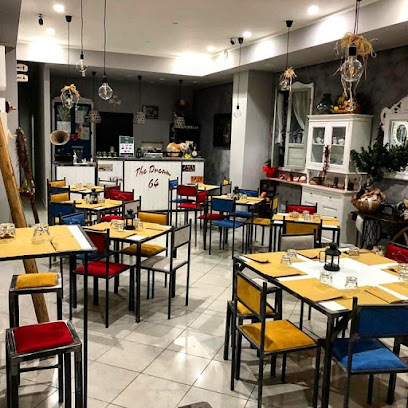
Methe Pompei
Discover the lively atmosphere and local flavors at Methe Pompei, a vibrant bar perfect for unwinding after exploring ancient ruins.
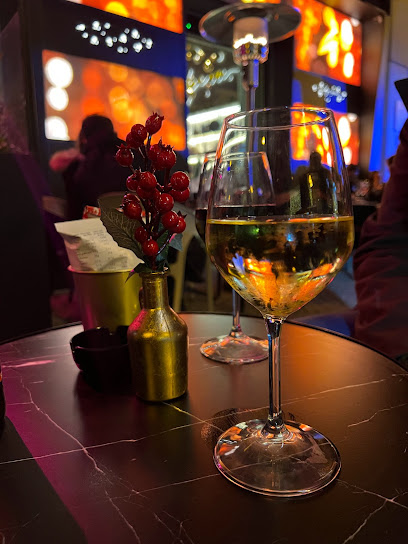
FOUR BASE
Experience the vibrant charm of FOUR BASE, a cozy bar in Pompei, perfect for unwinding with drinks after exploring ancient ruins.
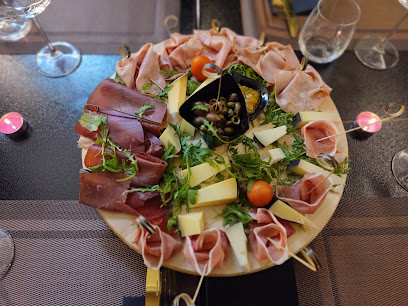
Bar Bouvette Misteri Di Vorro Luig
Discover Bar Bouvette Misteri Di Vorro Luig, your cozy coffee retreat near the Pompeii ruins, perfect for relaxation and local flavors.
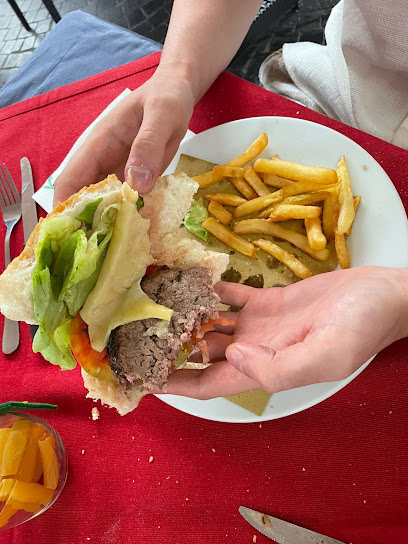
Local Phrases
-
- HelloCiao
[chow] - GoodbyeArrivederci
[ah-ree-veh-dehr-chee] - YesSì
[see] - NoNo
[noh] - Please/You're welcomePer favore/Prego
[pehr fah-voh-reh/preh-goh] - Thank youGrazie
[grah-tsyeh] - Excuse me/SorryScusami/Scusa
[skoo-sah-mee/skoo-sah] - How are you?Come stai?
[koh-meh stah-ee] - Fine. And you?Bene. E tu?
[beh-neh. eh too] - Do you speak English?Parli inglese?
[pahr-lee een-gleh-zeh] - I don't understandNon capisco
[nohn kah-pee-skoh]
- HelloCiao
-
- I'd like to see the menu, pleaseVorrei vedere il menù, per favore
[vohr-reh veh-deh-reh eel meh-noo, pehr fah-voh-reh] - I don't eat meatNon mangio carne
[nohn mahn-joh kahr-neh] - Cheers!Salute!
[sah-loo-teh] - I would like to pay, pleaseVorrei pagare, per favore
[vohr-reh pah-gah-reh, pehr fah-voh-reh]
- I'd like to see the menu, pleaseVorrei vedere il menù, per favore
-
- Help!Aiuto!
[ah-yoo-toh] - Go away!Vattene!
[vaht-teh-neh] - Call the Police!Chiamate la Polizia!
[kyah-mah-teh lah poh-lee-tsyah] - Call a doctor!Chiamate un dottore!
[kyah-mah-teh oon doht-toh-reh] - I'm lostMi sono perso
[mee soh-no pehr-soh] - I'm illSto male
[stoh mah-leh]
- Help!Aiuto!
-
- I'd like to buy...Vorrei comprare...
[vohr-reh kohm-prah-reh] - I'm just lookingSto solo guardando
[stoh soh-loh gwahr-dahn-doh] - How much is it?Quanto costa?
[kwahn-toh koh-stah] - That's too expensiveÈ troppo caro
[eh troh-poh kah-roh] - Can you lower the price?Puoi abbassare il prezzo?
[pwah-ee ahb-bahs-sah-reh eel preh-tsoh]
- I'd like to buy...Vorrei comprare...
-
- What time is it?Che ora è?
[keh oh-rah eh] - It's one o'clockÈ l'una
[eh loo-nah] - Half past (10)Sono le dieci e mezza
[soh-no leh dyeh-chee eh meh-tzah] - MorningMattina
[maht-tee-nah] - AfternoonPomeriggio
[poh-meh-ree-joh] - EveningSera
[seh-rah] - YesterdayIeri
[yeh-ree] - TodayOggi
[oh-jee] - TomorrowDomani
[doh-mah-nee] - 1Uno
[oo-no] - 2Due
[doo-eh] - 3Tre
[treh] - 4Quattro
[kwah-troh] - 5Cinque
[cheen-kweh] - 6Sei
[seh-ee] - 7Sette
[seht-teh] - 8Otto
[oh-toh] - 9Nove
[noh-veh] - 10Dieci
[dyeh-chee]
- What time is it?Che ora è?
-
- Where's a/the...?Dov'è...?
[doh-veh] - What's the address?Qual è l'indirizzo?
[kwahl eh leen-dee-ree-tsoh] - Can you show me (on the map)?Puoi mostrarmi (sulla mappa)?
[pwah-ee moh-stahr-mee (sool-lah mahp-pah)] - When's the next (bus)?Quando passa il prossimo (autobus)?
[kwahn-doh pahs-sah eel prohs-see-moh (ow-toh-boos)] - A ticket (to ....)Un biglietto (per ....)
[oon bee-lyet-toh (pehr)]
- Where's a/the...?Dov'è...?
History of Forum of Pompeii
-
The Forum of Pompeii served as the central public space of the city, dating back to the 6th century BCE. It was the epicenter of political, social, and economic life, surrounded by important temples, public buildings, and marketplaces. This area was pivotal for civic activities and gatherings, reflecting the grandeur of Roman architecture and urban planning.
-
The Forum housed several temples, including the Temple of Jupiter, which was dedicated to the chief deity of the Roman pantheon. The construction of these temples not only illustrates the religious devotion of the Pompeians but also their architectural expertise. The Temple of Apollo, dating back to the 2nd century BCE, is another significant structure that highlights the blend of Greek and Roman religious practices.
-
Throughout the Roman Republic and into the Empire, the Forum served as the political heart of Pompeii. It was here that public speeches, elections, and legal proceedings took place. The presence of a basilica within the Forum, a common feature in Roman towns, indicates the importance of law and governance in the daily lives of Pompeii’s citizens.
-
The Forum also functioned as a marketplace, where traders and citizens engaged in commerce. The presence of the Macellum, a marketplace for food, and various shops indicates a vibrant economic environment. The Forum facilitated trade not only within Pompeii but also with neighboring regions, contributing to the city’s prosperity.
-
The catastrophic eruption of Mount Vesuvius in 79 CE buried Pompeii under ash and pumice, preserving the Forum and its buildings in a remarkable state. This event halted the daily activities of the Forum, leaving it a poignant testament to the life and culture of the ancient Romans. Excavations have revealed detailed insights into the social, political, and economic dynamics of Pompeii before its destruction.
-
The Forum was rediscovered in the 18th century during the excavation of Pompeii, revealing a wealth of artifacts and structures that provide invaluable insights into Roman life. The ongoing archaeological efforts continue to uncover layers of history, allowing researchers and visitors to understand the complexities of life in this ancient city.
Forum of Pompeii Essentials
-
The Forum of Pompeii is centrally located within the archaeological site of Pompeii. If you are coming from Naples, you can take the Circumvesuviana train from Napoli Centrale to Pompeii Scavi - Villa dei Misteri station, which is a short walk from the entrance to the ruins. If you are already in Pompeii, the Forum is easily accessible on foot from other neighborhoods within the archaeological site.
-
The Forum of Pompeii is part of a pedestrian-friendly zone, and the best way to explore is on foot. The site is well-marked with signs directing you to various attractions. There are no public transportation options within the site, but taxis are available outside the main gates if you need to go to nearby areas. Bicycles are not allowed within the archaeological ruins.
-
Pompeii is generally safe for tourists, but standard safety precautions should be taken. Be cautious of pickpockets in crowded areas, especially near the main entrance and popular sites like the Forum. Although crime rates are low, it is wise to remain vigilant and keep your belongings secure.
-
In case of an emergency, dial 112 for police assistance or 118 for medical emergencies. The nearest hospital is in the town of Pompeii, but it’s advisable to have travel insurance that covers medical issues. For minor ailments, you can find pharmacies around the town.
-
Fashion: Do wear comfortable shoes for walking, and dress appropriately for the weather. Avoid overly casual attire like beachwear. Religion: Do respect the historical significance of the site, and refrain from loud conversations. Public Transport: Do be courteous and allow others to pass when walking. Don’t litter or vandalize the site. Greetings: Do greet locals with a friendly 'Buongiorno' (Good Morning). Eating & Drinking: Do enjoy a local gelato or drink water, but don’t eat while walking through the ruins.
-
To experience the Forum of Pompeii like a local, consider visiting early in the morning or later in the afternoon to avoid crowds. Engage with the knowledgeable guides available at the entrance for deeper insights into the history of the Forum. Explore the smaller, lesser-known paths around the Forum to discover quieter spots and unique perspectives of the ruins.
Nearby Cities to Forum of Pompeii
-
Things To Do in Herculaneum
-
Things To Do in Positano
-
Things To Do in Ravello
-
Things To Do in Amalfi
-
Things To Do in Sorrento
-
Things To Do in Naples
-
Things To Do in Capri
-
Things To Do in Matera
-
Things To Do in Bari
-
Things To Do in Rome
-
Things To Do in St. Peter's Square
-
Things To Do in Apostolic Palace
-
Things To Do in Vatican Necropolis
-
Things To Do in St. Peter's Basilica
-
Things To Do in Sistine Chapel











